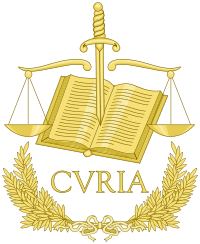
Brexit: why EU leaders should hold their horses
Bas van Bockel According to art. 50 of the Treaty on European Union (“TEU”, Lisbon version), “any Member State may decide to withdraw from the Union in accordance with its own constitutional requirements”. In February of this year the European Parliament published a briefing informing citizens and politicians of the backgrounds and the debate on…
Lees meer
Waarom het tribunaal dat het Zuid-Chinese Zee geschil behandelt plaats zou moeten maken voor een oplossing op basis van onderhandelingen
Tom Zwart In het Westen wordt het internationale recht in de collegezalen van juridische faculteiten en de kantoren van de ministeries van Buitenlandse Zaken uitsluitend nog geassocieerd met rechterlijke instanties en tribunalen. Het idee lijkt te hebben postgevat dat iets enkel als recht kan worden aangemerkt als het afkomstig is van een internationale rechterlijke instantie….
Lees meer
Why the Tribunal Dealing with the South China Sea Dispute Should Step Aside to Make Way for a Negotiated Settlement
Tom Zwart Increasingly, in the West, in the class rooms of law schools and offices of foreign ministries, international law is being associated exclusively with courts and tribunals. The idea seems to be that something can only be regarded as law if it emanates from an international court. This judicialization of international law overlooks the…
Lees meer
When It Rains, It Pours: Recente ontwikkelingen in het internationaal strafrecht
Brianne McGonigle Leyh Internationaal strafrecht heeft de reputatie dat het traag is en dat zo snel vordert als een slak. Zo duurde het bijvoorbeeld tien jaar voordat het Internationaal Strafgerechtshof (ICC) tot zijn eerste uitspraak kwam in de Lubanga zaak, nadat de werkzaamheden in 2002 waren aangevangen. Ook het Internationaal Tribunaal voor het voormalige Joegoslavië…
Lees meer
When It Rains, It Pours: Tracking the recent developments in international criminal justice
Brianne McGonigle Leyh International criminal justice has a reputation for being slow and progressing at a ‘glacial’ pace. For example, it took the International Criminal Court (ICC) ten years before it handed down its first judgment in the Lubanga case after it started operating in 2002. Similarly, the International Criminal Tribunal for the former Yugoslavia…
Lees meer
The Unity of Law 3: A step towards a definition and instruments that can optimize the unity of law
Introduction In my previous blog I gave a modest impetus to define the concept of ‘the unity of law’ and I have discussed a number of instruments which in any case (also) aim to optimize the unity of law. The following four instruments are distinguished: institutional reform, preliminary ruling procedure, coordination and a differentiated discursive…
Lees meer
Rechtseenheid 3: Aanzet tot definiëring en instrumenten die rechtseenheid kunnen optimaliseren
In mijn vorige blog heb ik een bescheiden aanzet gegeven om het begrip ‘rechtseenheid’ te definiëren en heb ik een aantal instrumenten genoemd die in elk geval (ook) als doel hebben om de rechtseenheid te optimaliseren. Vooralsnog worden de volgende vier onderscheiden: institutionele hervorming, prejudiciële procedure, coördinatie/afstemming en een gedifferentieerde discursieve motiveringsplicht. Het eerste instrument…
Lees meer
The claim industry as object of research
Eddy Bauw Under the headline ‘The claim industry’, the Volkskrant on Saturday the 27th of February devoted attention to the increase in the number of collective redress procedures in the Netherlands. The figures presented by the newspaper are clear: organisations who allegedly represent half a million people, have in total claimed 1.6 billion euros in…
Lees meer
De claimindustrie als onderzoeksobject
Onder de kop ‘De claimindustrie’ besteedde de Volkskrant op zaterdag 27 februari jl. aandacht aan de toename van het aantal collectieve schadeclaims in ons land. De cijfers die de krant presenteerde liegen er niet om: organisaties die een half miljoen mensen zouden vertegenwoordigen, claimden samen voor 1,6 miljard euro aan schadevergoeding bij bedrijven en instellingen….
Lees meer
Rechtseenheid 2: aanzet tot definiëring en instrumenten die rechtseenheid kunnen optimaliseren
In zijn ‘Rechtseenheid 1: Bloggen over rechtseenheid?’ heeft Eddy Bauw een inspirerende aftrap gegeven over het onderwerp rechtseenheid. Het is de bedoeling om – met die blog als startpunt – over dat onderwerp een reeks te openen. Met de onderhavige blog en de volgende blog wordt dienaangaande de spreekwoordelijke handschoen opgepakt.
Lees meer

